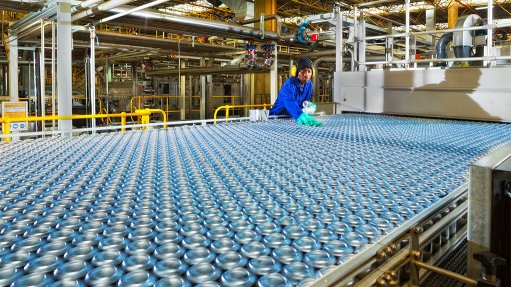
The seasonally adjusted Absa Purchasing Managers’ Index (PMI) improved to 54 in April, following a dip to 49.2 – below the neutral 50-point mark – in March, on the back of improved business activity, while better domestic demand filtered through to higher new sales orders.
A full month of no loadshedding was likely positive for sustained business activity, says Absa, adding that, in all, the survey results reflect a good start to the second quarter of this year.
"The business activity index improved to 57.2 points from 44.5 in March, and new sales orders rose to 55.6 points in April, compared with 45.5 in March. Some comments still point to demand remaining sluggish (although the survey outcome suggests it is much better than in March), but more than 30 days of no loadshedding has likely supported business conditions in the factory sector.
"In this regard, Eskom has announced that there has been sustained improvement in generation by the coal-fired plants, sufficient emergency reserves and lower demand for Eskom power. [The utility] has, however, cautioned that loadshedding is projected to return in the winter months," Absa points out.
Meanwhile, export sales remained more muted, suggesting that better domestic demand supported the improvement in the sales orders index.
The supplier deliveries index increased to 57.4 in April, following a welcome decline to 54.1 in March. The slight uptick in April, indicative of slower deliveries, could have been the result of higher demand from across the factory sector keeping suppliers busy, Absa notes.
It adds, however, that the reading remains below the recent highs when local port and rail issues hampered supply chains.
The index for expected business conditions in six months declined to 55.7 in April from 62.1 in March. The expectation of a return of loadshedding, relative to no disruptions currently, could explain this. There might also be concerns about fewer interest rate cuts in South Africa and elsewhere compared with earlier expectations, the bank says.
The purchasing price index declined slightly to 72.4 points from 74.6 in March.
"As much as this is welcomed, it remained at a relatively high level, reflecting sustained cost pressure. The relatively weaker rand exchange rate and higher (and volatile) oil prices indicate sustained upward price pressures on manufacturers," Absa states.